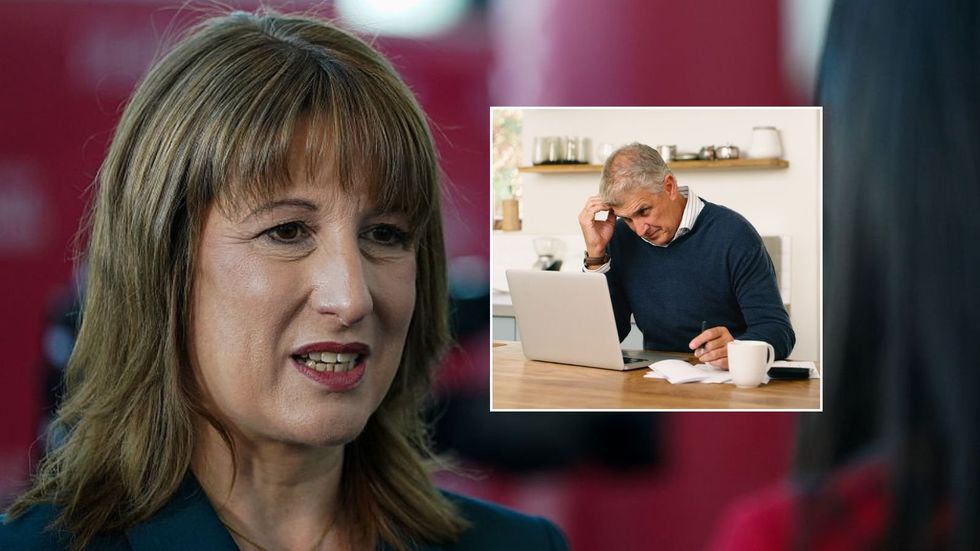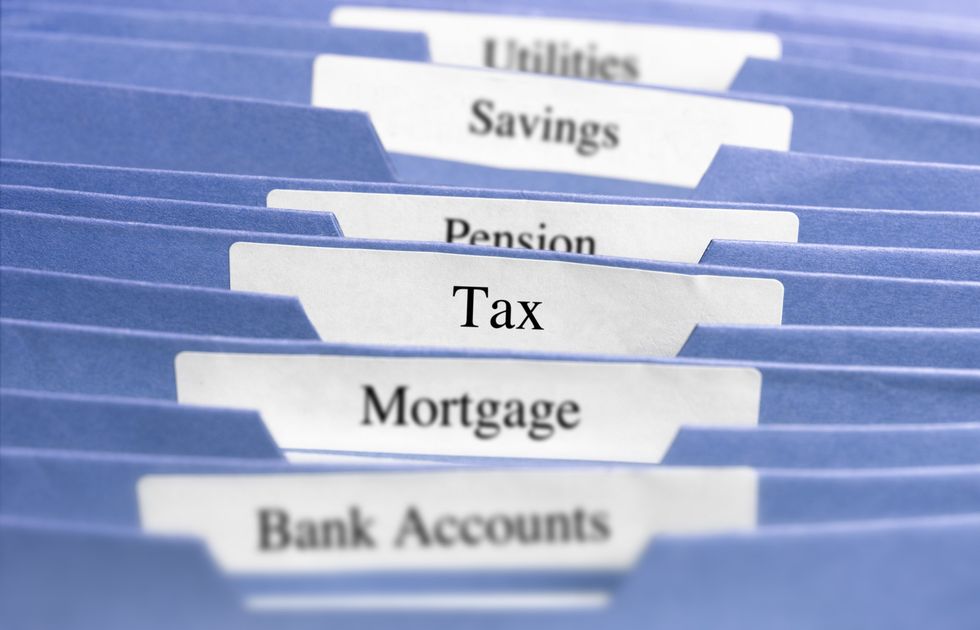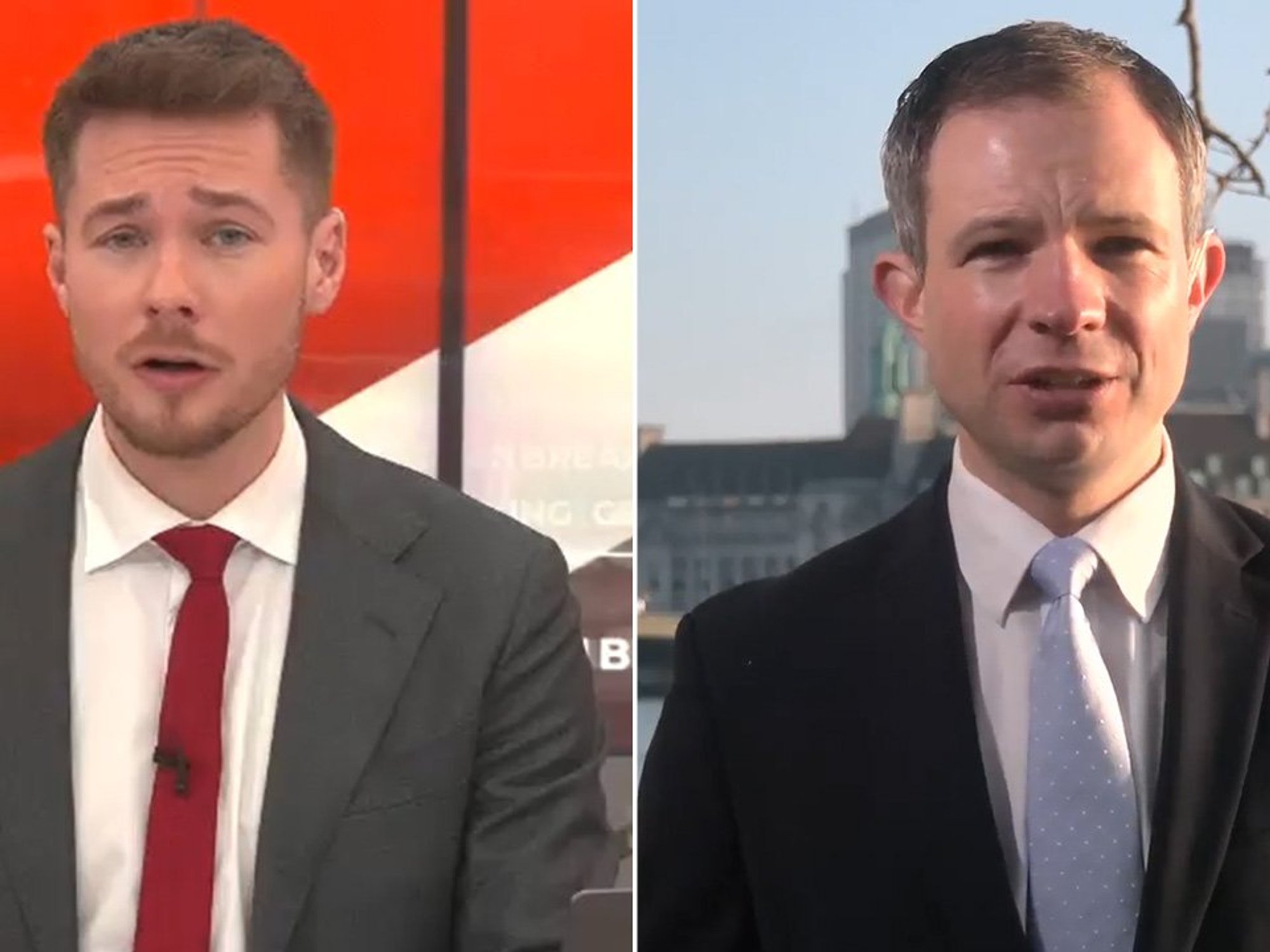Rachel Reeves' stealth tax raid - find out exactly how much YOU could lose

Eamonn Holmes sends warning to Keir Starmer as Rachel Reeves mulls stealth tax raid |
GBNEWS

Experts warn the freeze drags millions into higher brackets, costing households hundreds more every year
Don't Miss
Most Read
Workers across Britain face paying hundreds of pounds more in tax if Chancellor Rachel Reeves proceeds with plans to prolong the current income tax threshold freeze past 2028.
The measure, which could feature in the Autumn Budget on 26 November, would prevent tax bands from rising with inflation for an additional two years.
This policy, often described as a stealth tax, means employees receiving pay rises risk being pushed into higher tax brackets or becoming liable for income tax for the first time.
The freeze has already been in place for approximately four years under the previous Conservative government.
The Treasury estimates suggest the extension could generate around £7billion annually in additional revenue.
Analysis by financial services firm Quilter reveals the precise financial impact on different income levels.
Employees earning between £20,000 and £40,000 would face an additional £106 tax bill in 2028/29, increasing to £214 by 2029/30.
The burden intensifies significantly for middle earners. Those with salaries of £45,000 would see portions of their income pushed into the 40 per cent tax bracket, resulting in extra payments of £317 in 2028/29 and £643 in 2029/30.

The Treasury estimates suggest the extension could generate around £7billion annually in additional revenue
|GETTY
Higher earners face similar percentage increases. Individuals earning £125,000 annually would pay an additional £354 in 2028/29, rising to £718 the following year.
The frozen threshold at £12,570 contrasts sharply with where it would stand if inflation adjustments had continued - over £16,000 according to financial experts.
The Chancellor's current position represents a significant shift from her previous stance. During last year's Budget, Ms Reeves explicitly rejected extending the threshold freeze, arguing it would "hurt working people".
 Chancellor Rachel Reeves is confronting mounting fiscal pressures | POOL
Chancellor Rachel Reeves is confronting mounting fiscal pressures | POOL However, when questioned at this week's Labour party conference about guaranteeing the freeze would end as scheduled, she declined to provide assurance. "I'm not going to be able to do that," Reeves told the BBC.
This apparent reversal has sparked concern among financial advisers and taxpayers. The thresholds, which determine when individuals begin paying income tax or move into higher rate bands, have remained static since the Conservative government implemented the freeze.
Under current legislation, these thresholds are scheduled to resume annual inflation-linked increases from April 2028. Financial experts are sounding alarm bells about the hidden nature of these tax increases.
 British pensioners confront an increasingly heavy tax burden as frozen allowances push millions into paying income tax for the first time | GETTY
British pensioners confront an increasingly heavy tax burden as frozen allowances push millions into paying income tax for the first time | GETTYShaun Moore from Quilter described how stealth taxes "quietly eat away at people's pay packets through the back door", whilst noting that fiscal drag remains an effective revenue-raising mechanism for the Treasury.
Money Saving Expert founder Martin Lewis addressed the Labour conference, stating that the public is paying more tax "through stealth" and calling for an end to what he termed a "deliberate thing to take extra tax from the public through stealth".
Karen Barrett of Unbiased advised affected workers to consider increasing pension contributions to avoid being pushed into higher tax brackets. She recommended consulting qualified financial advisers for assistance with managing tax liabilities.
More From GB News










